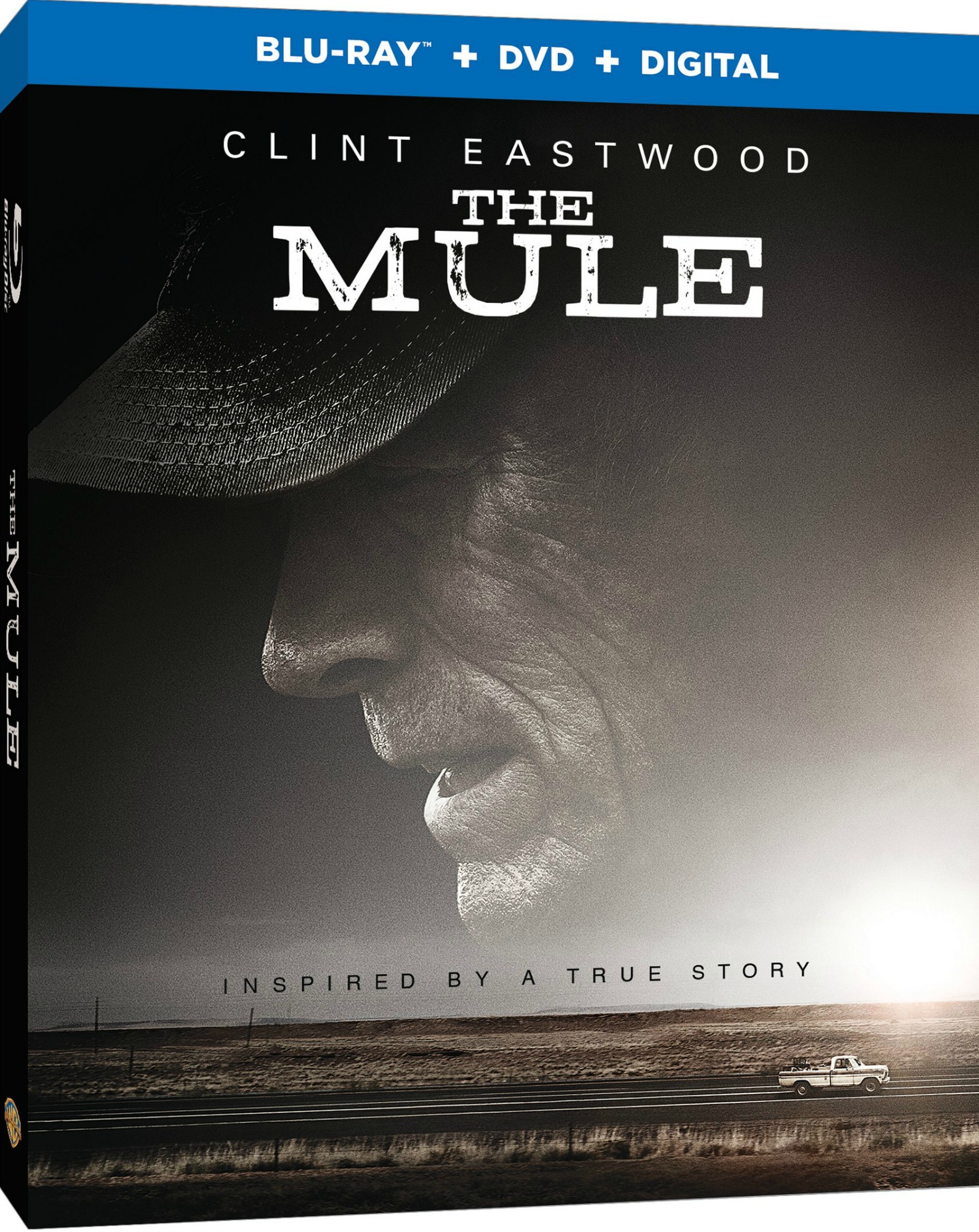Many of Clint Eastwood’s films dating back to “Dirty Harry” have featured one-dimensional and stereo-typed characters who show little understanding of morals or values, and when he directs himself in a movie he often makes sure to include a scene in which he is with a naked woman, frequently of some ethnicity other than his own.
You’ll find all of these elements once again in “The Mule,” being released in a 4K UHD Combo Pack ($44.95), Blu-ray combo pack ($35.99) and DVD Special Edition ($28.98) on April 2, and available now on digital streaming services.
And as is often the case with Eastwood movies, “The Mule” is mildly entertaining, and gets a big boost from Oscar-nominated co-stars Bradley Cooper, Andy Garcia, Laurence Fishburne, and Oscar winner Dianne Weist.
The Blu-ray includes a nice 11-minute making-of featurette with comments from most of the cast and several key members of the crew, along with behind-the-scenes footage. Toby Keith’s music video Don’t Let the Old Man In is also included.

The movie is very loosely based on a true story of a financially-strapped man living along in his 80s who becomes a courier for a drug cartel for many years, driving huge quantities of drugs long distance in the bed of his pick-up truck across state lines and even to Mexico, before eventually being captured by the DEA during a run.
That underlying premise is one of only about two things that are historically accurate — the other being that the man – Leo Stone in the movie (Eastwood); Earl Sharp in real life — owned a flower business and enjoyed puttering in the garden.
Everything else is at least slightly but mostly significantly altered for the movie, including Stone being long-divorced from a much-younger wife (Weist) who is deathly sick, and Stone’s strained relationship with their daughter (played by Eastwood’s real-life daughter Alison).
Cooper plays his typically nice guy as the DEA agent who has long been trying to make a bust in this cartel (Sharp ran drugs from 2000-2011; this movie shows the timeline from 2005-2017), and actually has a pleasant encounter with Stone in a roadside diner before he knows Stone’s identity. The back-and-forth scenes from the pursuer to the criminal are played well and keep you engaged in the unfolding drama in a manner similar to Steven Spielberg’s “Catch Me if you Can,” starring Leonardo DiCaprio, although here Stone has no idea he is being pursued and there is no cleverness about his eluding capture for so long. It’s just the unlikelihood of his age and his casual demeanor that keep him from the grasp of the DEA — there are many scenes of Stone driving alone in his truck singing along with songs. (In the movie he is based in Peoria, Illinois, with many drug runs beginning in Chicago, but in real life he was based in Detroit.)
Although in real life the drug cartel that Sharp was tied up with was under the auspices of the notorious El Chapo, his name isn’t mentioned here. Instead, we get a charming man in Mexico (Garcia) giving the orders who even becomes so endeared with Stone as his most remarkable and successful mule that he flies him down to his ranch to throw him a party (this is where Eastwood works in the bare-chested woman and several other scantily-clad women to grind on him by the pool and have two of them lure him to bed).
It’s Stone’s slowly-evolving newfound financial stability and sudden philanthropy that is the most engaging element of “The Mule,” despite his once again forcing in opportunities to make racially disparaging remarks like telling a young black couple he stops to help change their tire that he is happy to help Negroes. Totally out of the blue and unnecessary but he gets away with it as supposedly just an indication of the octogenarian’s personality, for which we already have a good picture.
The making-of featurette offers a nice couple of comments from father-and-daughter Eastwood about working with each other, and some details about the attention paid to the accuracy of things involving the drugs Stone was carrying and the DEA materials.
— By Scott Hettrick
